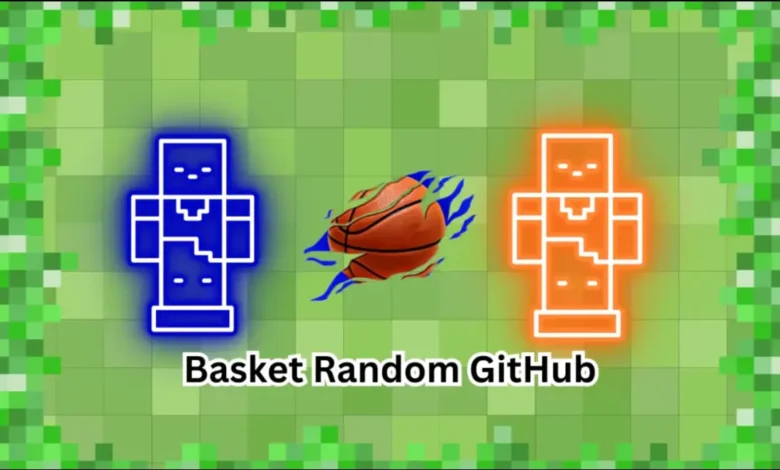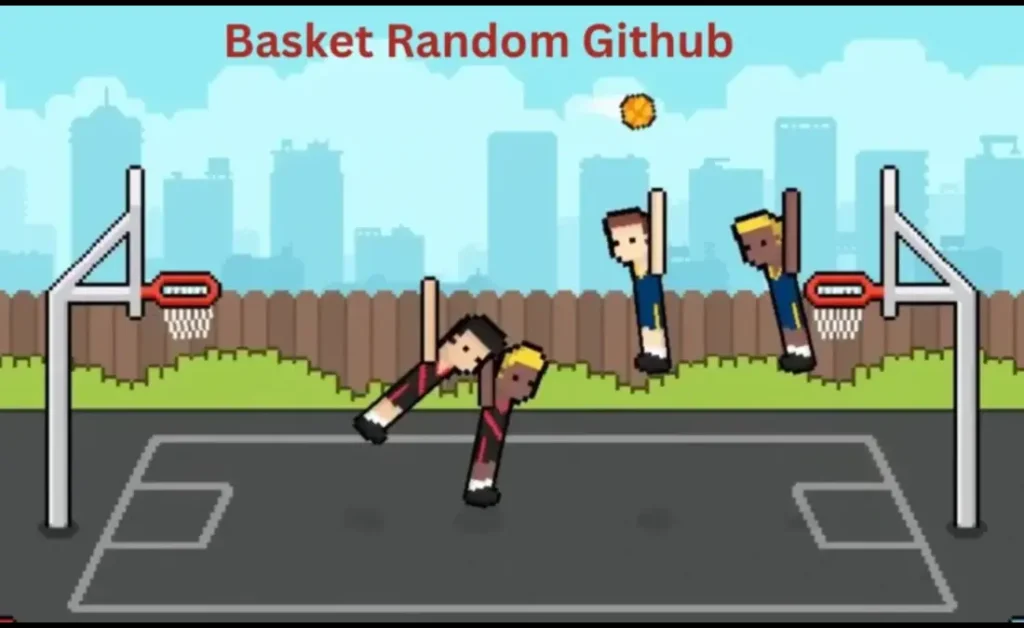Basket Random GitHub: Open-Source Chaos on the Court

1. Introduction to Basket Random GitHub
In recent years, Basket Random GitHub has become a trending search among indie game developers, coding students, and hobbyist programmers. Combining the chaotic gameplay of Basket Random with the collaborative power of GitHub, this term refers to a growing set of open-source projects that replicate or expand the core mechanics of the game. Whether you’re curious about how the game works or want to build your own clone, Basket Random GitHub offers endless possibilities for innovation and learning.
2. What is Basket Random?
Before diving deeper into the Basket Random GitHub landscape, it’s important to understand the origin of the game. Basket Random is a 2D basketball game where physics, randomness, and hilarity intersect. Two players, often flailing and flipping, try to score hoops in a constantly changing arena. Its ragdoll physics and one-button gameplay make it both absurd and addictive.
The gameplay’s simplicity makes it an ideal target for recreation, which is why the Basket Random GitHub community is growing—developers are keen to replicate, remix, or even improve the experience.
3. GitHub as the Hub for Basket Random Projects
GitHub is not just a version control platform—it’s a global playground for open-source creativity. When users type “Basket Random GitHub” into the search bar, they uncover a treasure trove of community-driven projects. These range from HTML5 clones to Unity remakes and even Python tutorials. Thanks to GitHub, developers of all skill levels can fork, clone, and build their versions of Basket Random.
The most downloaded or starred Basket Random GitHub repositories often feature strong documentation, browser support, and active issue tracking.
4. Languages Used in Basket Random GitHub Projects
There is no single tech stack when it comes to Basket Random GitHub projects. Here are some commonly used ones:
- JavaScript/HTML5 Canvas: Ideal for quick browser-based clones.
- Unity (C#): Popular among advanced developers replicating physics and graphics.
- Python (Pygame): Used mainly for educational or demo purposes.
By hosting their code on GitHub, creators of Basket Random GitHub projects can gain feedback, contributors, and even visibility within the indie game development scene.
5. Notable Basket Random GitHub Repositories
A few standout repositories from the Basket Random GitHub tag include:
basket-random-js-clone: A JavaScript clone playable in the browser.unity-basket-random-remake: Built with Unity’s 2D toolkit and C# scripting.pygame-basketball-clone: A basic version using Pygame, tailored for Python learners.
Each Basket Random GitHub repo is a unique take on the original game, with some enhancing visuals, others adding multiplayer modes, and a few even including AI players.
6. Educational Value of Basket Random GitHub
From a learning perspective, Basket Random GitHub projects are gold mines. They expose developers to:
- Basic game loop architecture
- Physics simulations
- Collision detection
- Input handling
- Randomized events
Many programming teachers now encourage students to build their own versions of the game using templates from Basket Random GitHub repositories.
7. How to Start Your Own Basket Random GitHub Project
If you’re inspired to create your own version of the game, follow these steps:
- Find a base repo on GitHub by searching “Basket Random GitHub”.
- Fork the repository to your GitHub account.
- Clone it locally and explore the code.
- Modify sprites, change gameplay mechanics, or add your own features.
- Push your changes and contribute back to the Basket Random GitHub community.
This cycle of sharing and improving code is what makes GitHub a powerhouse for collaborative game development.
8. Challenges in Basket Random GitHub Projects
Despite its simplicity, there are challenges in building a quality Basket Random GitHub clone:
- Ragdoll physics require accurate joint constraints.
- Frame synchronization can be tricky for multiplayer versions.
- Input responsiveness must feel natural despite randomness.
The best Basket Random GitHub repositories address these challenges with clear code organization and modular components.
9. Basket Random GitHub for Modding
Many fans use Basket Random GitHub projects as starting points for mods. Common mod ideas include:
- Custom characters and skins
- Themed courts (e.g., space, beach, neon)
- Power-ups and crazy physics modifiers
- New control mechanics or weapons
GitHub’s pull request and forking system make it easy for modders to suggest and test their features, expanding the Basket Random GitHub ecosystem.
10. Community Around Basket Random GitHub
The community surrounding Basket Random GitHub thrives on:
- Open communication via Issues and Discussions tabs
- Collaborations on Discord or Reddit (r/gamedev)
- Showcasing finished versions on itch.io or GitHub Pages
GitHub enables this interconnectedness, where developers from around the world contribute to the evolution of their favorite games.

11. Basket Random GitHub and Licensing
If you’re using or publishing your own Basket Random GitHub project, always pay attention to licenses. Since the original game by RHM Interactive is not open source, be cautious:
- Avoid using exact assets from the original.
- Credit the inspiration appropriately.
- Use original code and art whenever possible.
- Choose open licenses like MIT, GPL, or Creative Commons for your own project.
This ensures your Basket Random GitHub project remains ethical and compliant with open-source norms.
12. Tools That Help Develop Basket Random GitHub Projects
To build better Basket Random GitHub projects, use these tools:
- Tiled Map Editor: For designing randomized courts
- Box2D / Matter.js: For simulating physics
- Aseprite / Piskel: To create pixel art sprites
- GitHub Actions: For automated testing and deployment
Many advanced Basket Random GitHub repositories integrate these tools for performance and scalability.
13. How Basket Random GitHub Inspires Innovation
By remixing and forking projects, developers evolve the concept. Some innovative Basket Random GitHub derivatives include:
- AI-controlled bots trained via reinforcement learning
- Mobile-first designs with on-screen controls
- VR mini-games using similar mechanics
- 3D versions made in Unity or Unreal Engine
All of these stem from the humble beginnings of the Basket Random GitHub movement.
14. Future Possibilities for Basket Random GitHub
As WebAssembly, AI, and multiplayer web tools evolve, we can expect future Basket Random GitHub projects to be:
- More performant and responsive
- Mobile-compatible by default
- Multiplayer-ready with matchmaking
- Enhanced with AI/ML for adaptive gameplay
New frameworks like Phaser 3, Godot, and React-based game engines could push the boundaries of what’s possible with Basket Random GitHub.
15. Conclusion: Why Basket Random GitHub is Worth Exploring
Basket Random GitHub is more than a meme-worthy clone—it’s an entry point into serious game development. Whether you’re a student learning game loops, a seasoned dev experimenting with physics, or a hobbyist making the next viral mod, this open-source trend has something for everyone.
By contributing to or building from a Basket Random GitHub project, you join a global, creative, and educational movement. It’s the perfect blend of code, chaos, and community.







